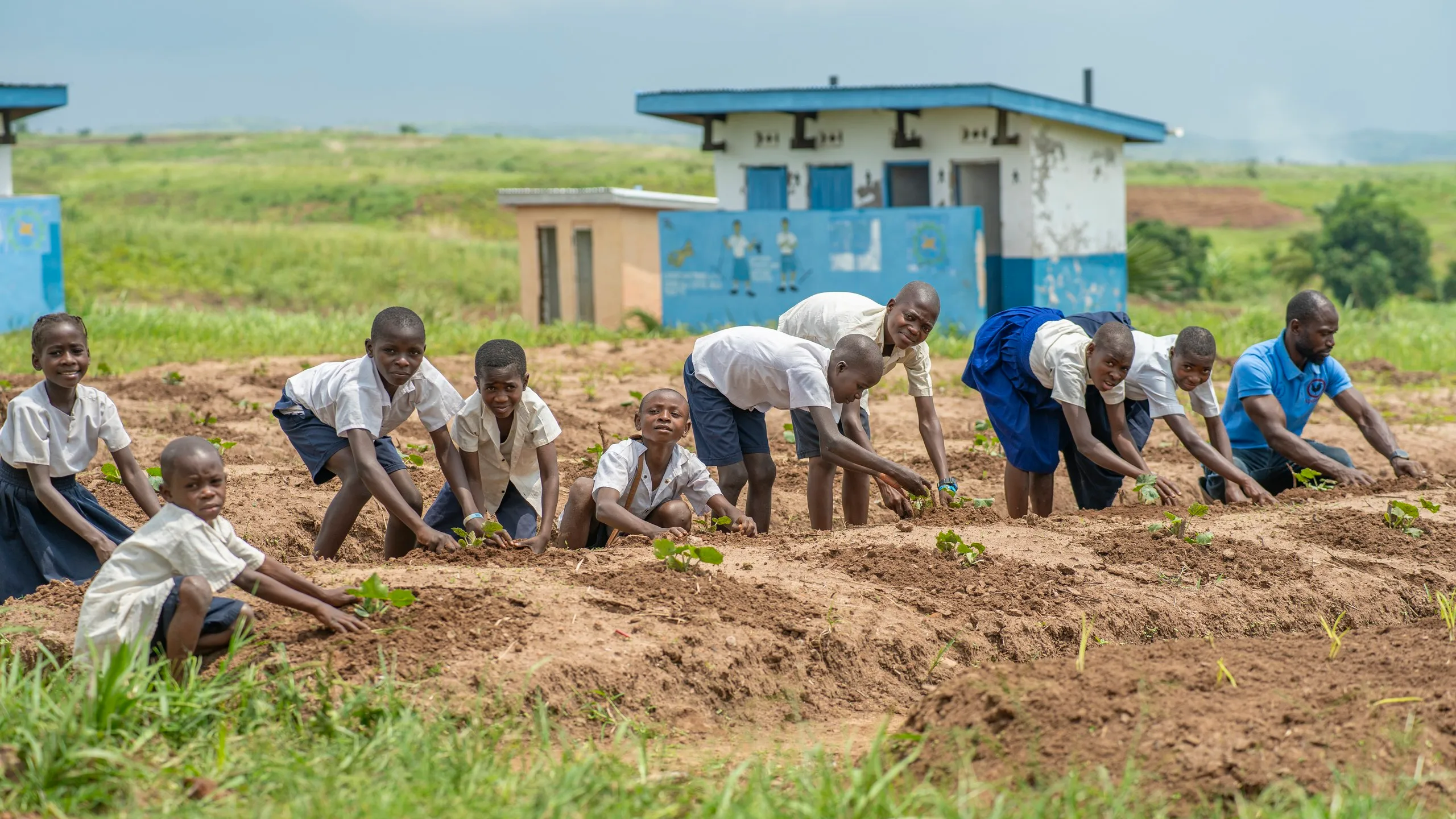Farmers working on their land
Tanganyika
Gilbert Kakule
Scroll to read the full story
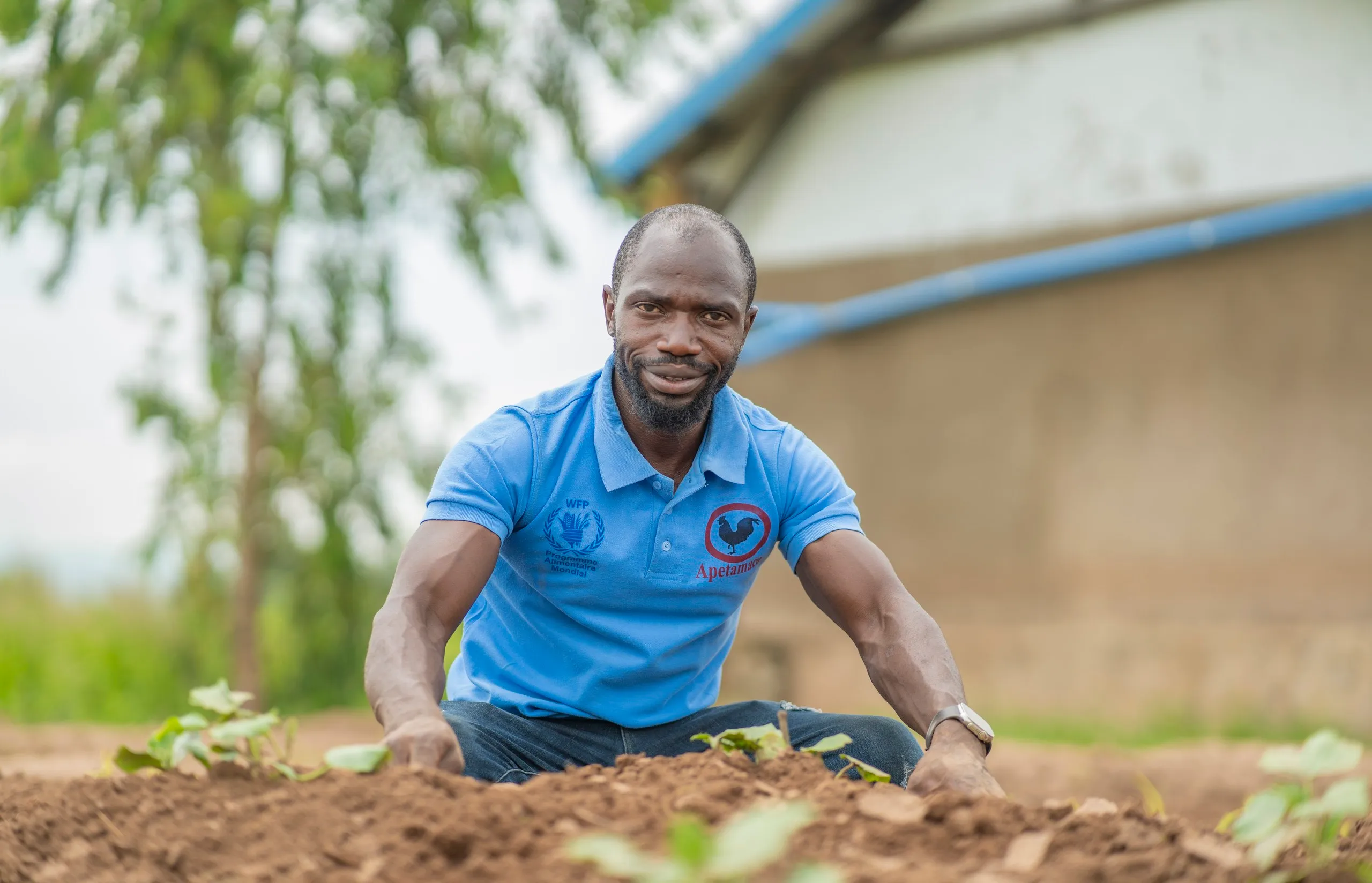
“My name is Kakule Kiberiti Gilbert, and I am one of the agronomy supervisors for APETAMAKO, a WFP partner in Tanganyika,” he begins, speaking with conviction about the work that shapes his days. His role is not just about growing food—it’s about sowing seeds of empowerment and self-reliance in the next generation.
Gilbert explains the vision behind introducing children to school gardens. “The goal is to teach them self-sufficiency. While WFP provides cereals, legumes, oil, and salt, it is also important to supplement these meals with fresh vegetables,” he says. By cultivating their own produce, students learn practical skills that enhance their school meals and their understanding of food systems. This initiative is about more than just nutrition. “One of the objectives of having community fields in schools is to remind everyone of their responsibility,” Gilbert says.
His words resonate with a simple yet powerful truth: feeding a child is a shared responsibility—one that unites students, parents, and communities in the pursuit of a better future.
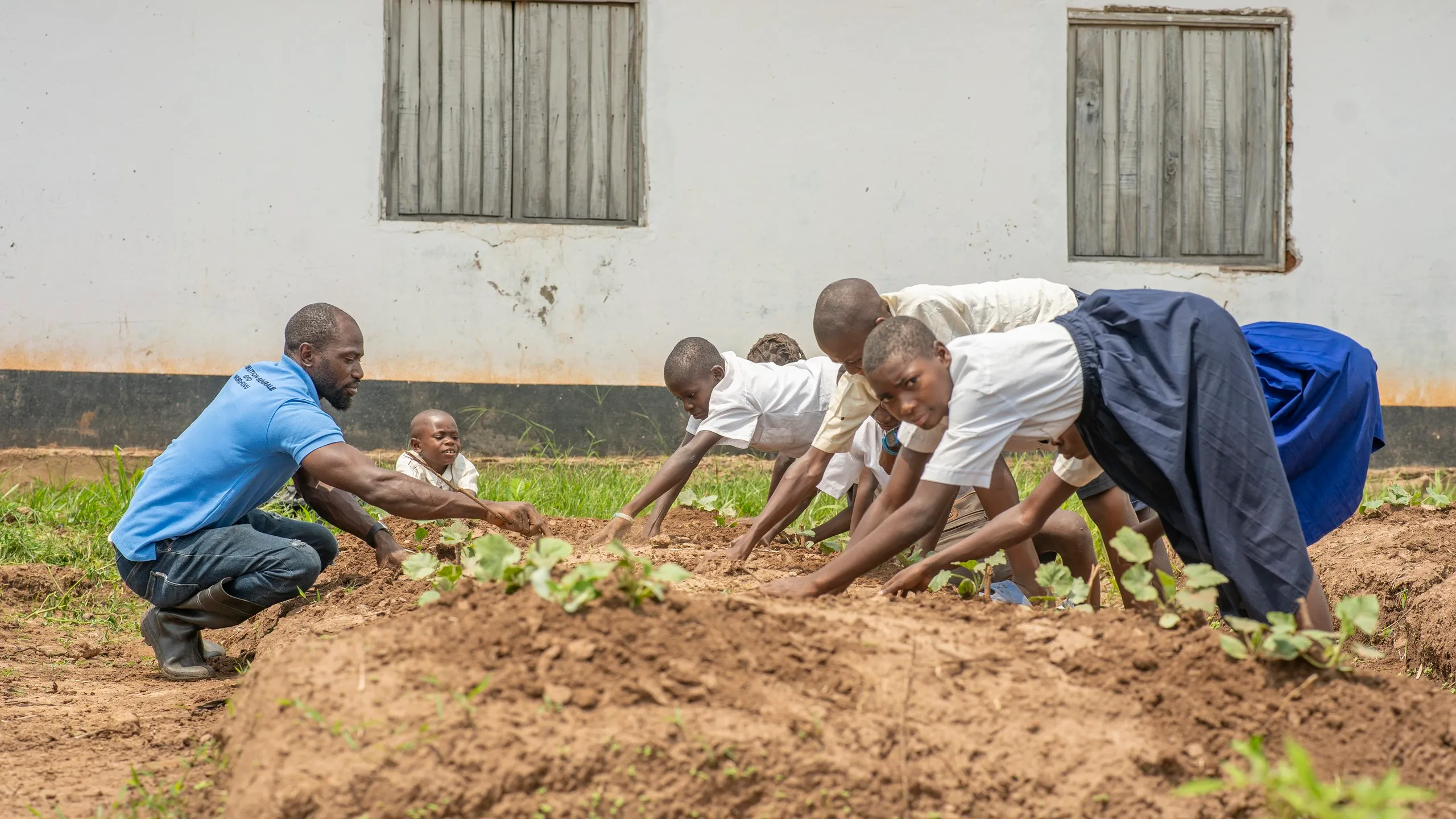
“The goal is to teach children self-sufficiency in school feeding activities. WFP provides cereals, legumes, oil, and salt, but it's important to supplement these meals with vegetables that the children grow themselves.”
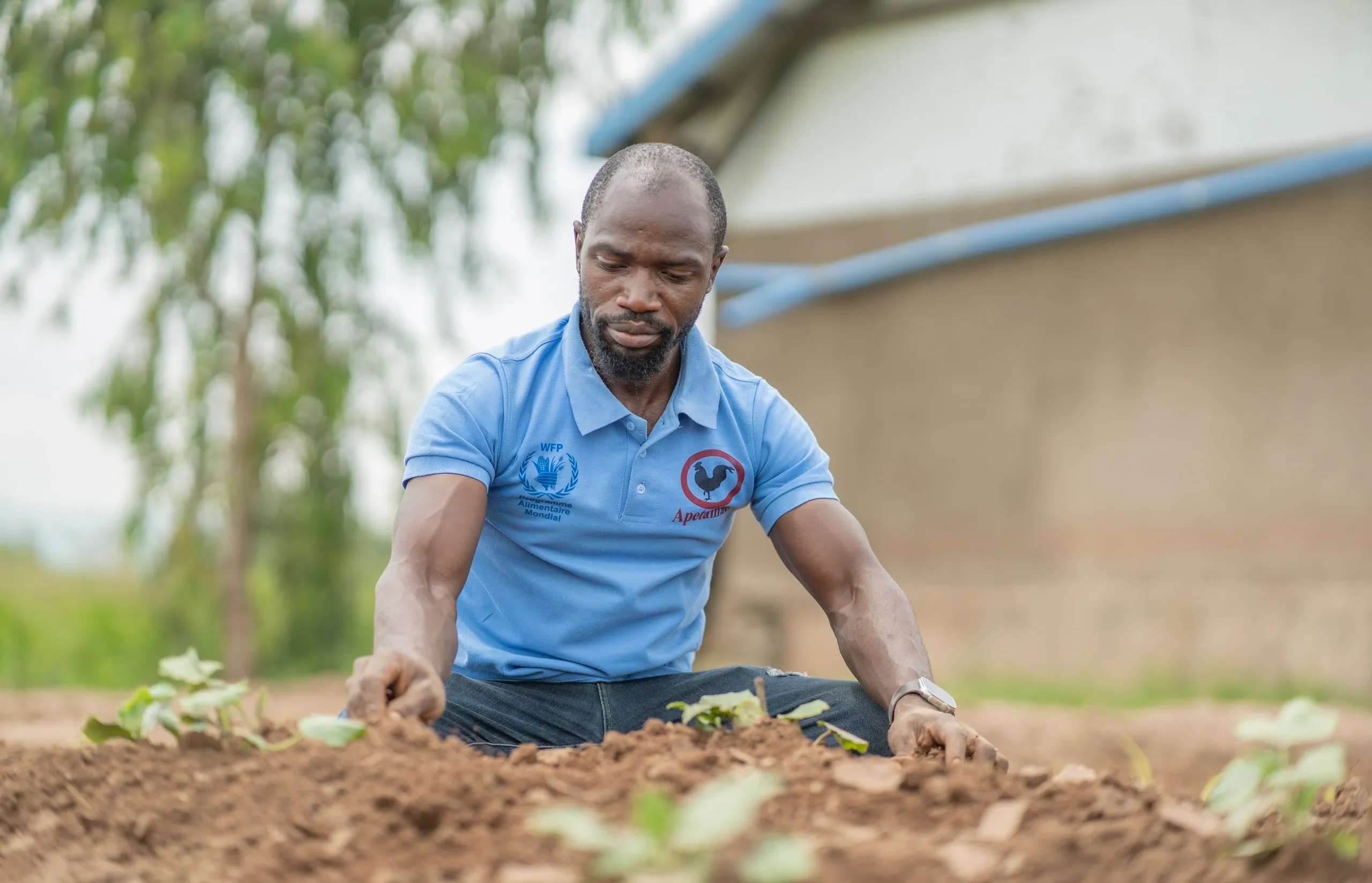
“The goal is to teach children self-sufficiency in school feeding activities. WFP provides cereals, legumes, oil, and salt, but it's important to supplement these meals with vegetables that the children grow themselves.”
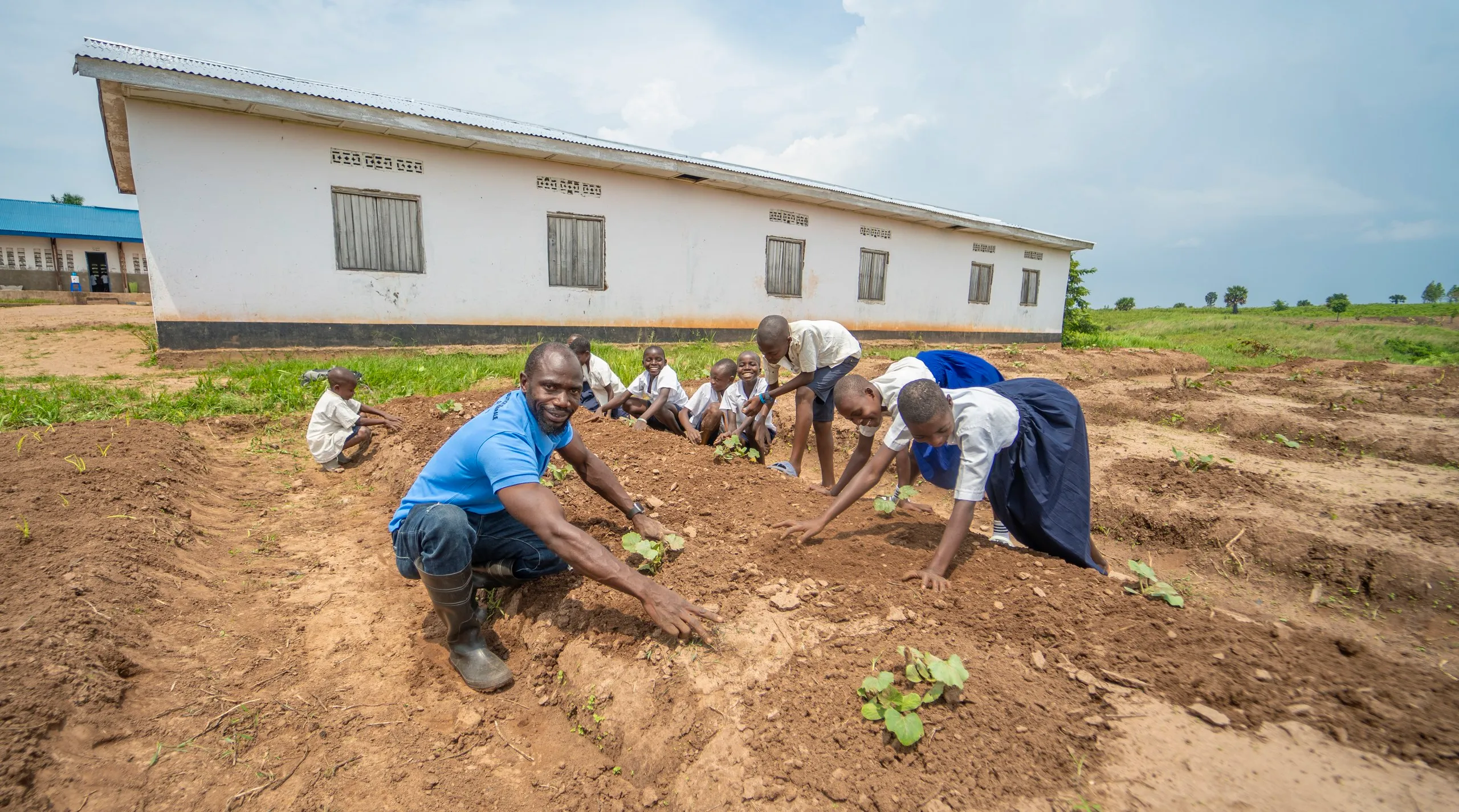
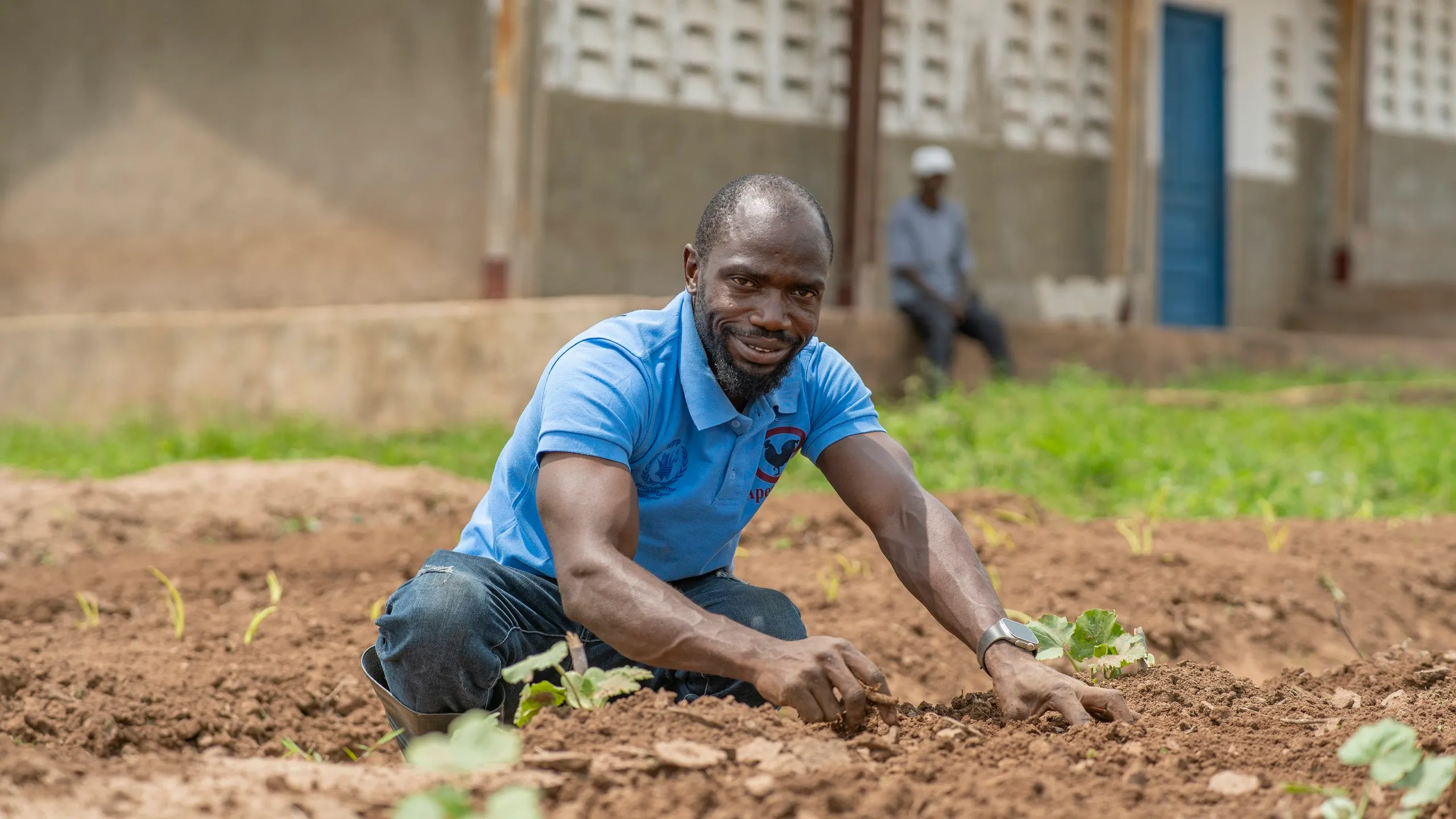
“Since the school meals began, children come to school with enthusiasm. They know they'll learn and eat.”
Marie Kasongo, teacher
